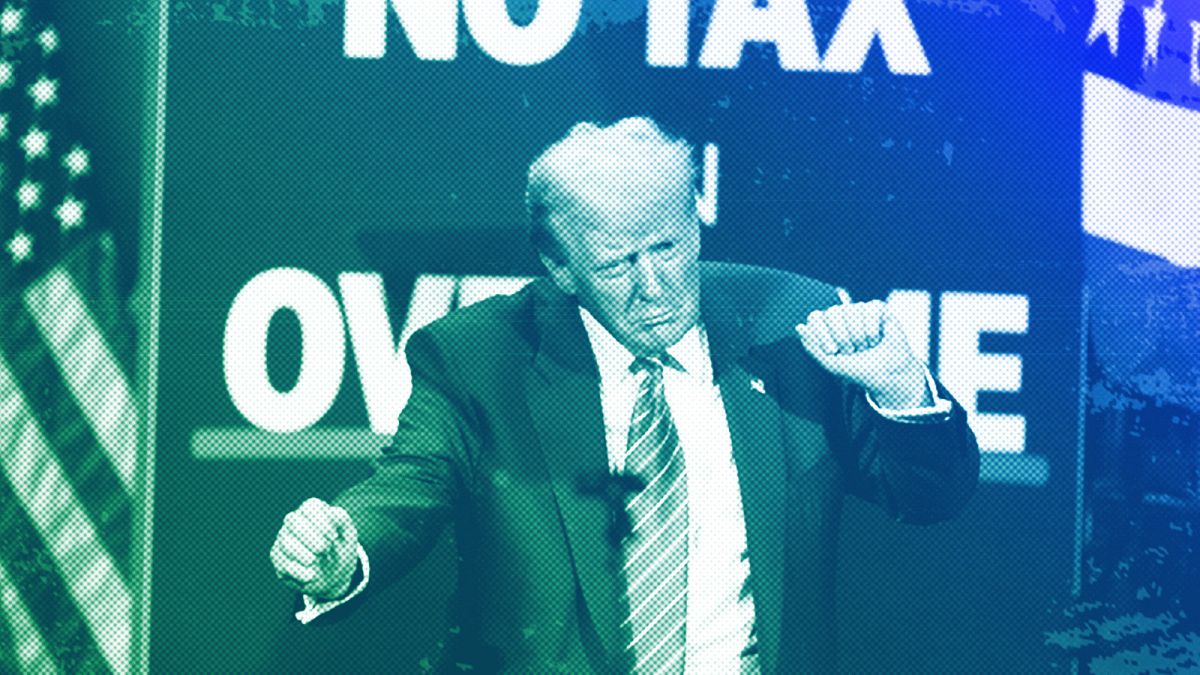The opinions expressed in this article are those of the author and do not represent in any way the editorial position of Euronews.
The US retreated from the global climate fight during Trump’s first term, and his second term will be no different. This is an opportunity for Europe to align with others on the issue that will define generations to come, Ibrahim Özdemir writes.
Whether it is taking Greenland by force, reclaiming the Panama Canal, or making Canada America’s 51st State, what President-Elect Donald Trump’s actual foreign policy looks like when he moves back into the White House on Monday is anyone’s guess.
The same applies to trade: on the one hand, Trump has already announced prominent foreign investment deals including Dubai’s Damac Properties putting $20 billion (€19.4bn) into building data centres in eight US states on 7 January. On the other, he has threatened a blanket tariff of 10% on all foreign imports (60% on China) that already has European nations worried.
Britain’s National Institute of Economic and Social Research (NIESR) says growth in the UK could fall by as much as 0.7 percentage points in the first two years if Trump makes good on his tariffs. Trump argues that his tariffs — along with cutting corporate income tax from 35% to 21% — will incentivise foreign companies to invest in American manufacturing plants.
To be fair, Trump didn’t invent economic protectionism: it was US President Joe Biden who forced a Saudi Aramco-backed venture capital firm to sell its shares in a Silicon Valley AI chip startup owned by Sam Altman and blocked Japan’s Nippon Steel Corporation from acquiring a steel mill from US Steel over national security concerns. This despite a raft of genuinely quite generous concessions from the Japanese company over production and job protections.
But investors don’t like unpredictability, and Trump’s erratic and often contradictory statements on free trade, foreign investment and everything else in recent weeks will have done little to reassure them. Hardly a hotbed of stability and reasonableness at the best of times, Europe looks like a safe pair of hands in comparison for many investors.
It is well-trodden ground.
The art of the deal?
In 2024, Middle Eastern companies spent $24 billion (€23.27bn) snapping up European assets, 74% above the average for the last decade. Deals of note included Abu Dhabi National Oil Company’s takeover of German chemicals firm Covestro for a record $15.1 billion (€14.6bn), and ADNOC’s logistics arm’s $1.1bn (€1bn) deal to take control of UK-based tanker operator Navig8 in January 2025.
And ADNOC’s European shopping spree may just be beginning. The oil giant has set up an investment company, XRG, with $80 billion (€77.6bn) to snap up chemicals and low-carbon energy companies. Due to start operating in the first quarter of 2025, XRG is expected to target natural gas and chemical companies in Europe and elsewhere for investment and acquisition.
Gulf companies like Europe because valuations are low and the regulatory burden is not as onerous as the US: Europe, for example, does not have an equivalent to the Committee on Foreign Investment in the U.S. (CFIUS), and although deals do take time — more than a year passed between ADNOC’s 2023 offer for Covestro and the deal being signed — they do happen.
Even in Spain, far more protectionist than Germany, the Spanish government finally approved the Saudi Telecom (STC) bid to increase its stake in Telefonica in November 2024.
If there is a predictable element to Trump’s policy once he takes back the White House, it will is his opposition to green energy and sustainability in general. He has threatened to repeal Biden’s Inflation Reduction Act, which includes major incentives for clean energy. Critics say that Trump’s actions could push $80 billion of investment in the clean energy sector to other countries.
Europe can look elsewhere and profit from it, too
By contrast, if there is one key area of common ground between Europe and the Gulf, it is the importance of the energy transition, and behind ADNOC’s investment strategy in Europe is an open commitment to the United Arab Emirate’s goal of net zero by 2050. Its expansion into chemicals with the Covestro acquisition is a statement of intent in building its presence in the sustainable materials sector, which is critical to reaching climate goals.
The European Union too has committed to climate neutrality and net-zero greenhouse gas emissions by the same deadline and will struggle to meet them in an era of sky-high energy prices and economic instability without significant investment. Europe has what the Gulf needs — technology and infrastructure — and the Gulf has what Europe needs, money and ambition.
The US retreated from the global climate fight during Trump’s first term, beginning with the president’s withdrawal from the Paris Agreement, and his second term will be no different.
This is not only an opportunity for Europe and the countries of the Gulf to benefit from the lucrative green energy sector, but to align on the issue that will define this generation, and generations to come.
Ibrahim Özdemir is Professor of Philosophy and Ecology at Üsküdar University and Founding President at Hasan Kalyoncu University. He has been a consultant to the United Nations Environment Program (UNEP) since 2015.
Checkout latest world news below links :
World News || Latest News || U.S. News
The post Trump will abandon the climate fight. This could be Europe’s gain appeared first on WorldNewsEra.

